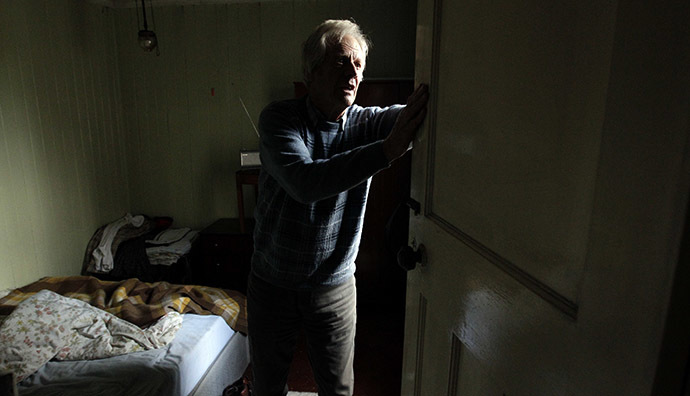Food poverty: UK experts warn of rising levels of malnutrition

Rising levels of food poverty have led to malnutrition becoming more common in the UK, experts say. The public health problem is responsible for a range of ailments surfacing across the country, including rickets.
Britain’s Faculty of Public Health has linked the growing trend to people’s inability to afford quality food. According to the latest figures, there has been a 19-percent increase in the number of UK citizens hospitalized for malnutrition over the past twelve months.
UK ministers say the government has billions available to tackle issues concerning public health. The coalition recently confirmed that a portion of this funding will be channeled towards local authorities to address public health concerns such as malnutrition.
But against a backdrop of alleged funding to address state-wide manifestations of food poverty, a national crisis is looming.
Statistics released by the Health and Social Care Information Centre in August, show the number of people admitted to English and Welsh hospitals rose dramatically – from 5,469 to 6,520 – in the past year alone. Reflecting on the issue, vice president of the Faculty of Public Health, John Middleton, warned ill health arising from poor diets was worsening throughout Britain "through extreme poverty and the use of food banks."
"It's getting worse because people can't afford good quality food. Malnutrition, rickets and other manifestations of extreme poor diet are becoming apparent," he told the BBC.
The rise of food poverty
The Faculty of Public Health emphasize Food prices in Britain have risen by 12 percent in the past seven years, while British workers have suffered a 7.6 percent decrease in their wages over the same period.
In an effort to address increasing food poverty throughout Britain, multiple non-state initiatives are attempting to assist families in need.
The Ashram Housing Association’s Holliday Kitchen, the Fun and Food in School Holidays program and the Kellog’s Holiday Breakfast Club are just some of the independent schemes working to help families and individuals struggling to make ends meet.
According to the NHS, signs of malnutrition include rapid weight loss, weak muscles, constant tiredness, increased infections and illness, slow growth in children and irritability, sluggishness and anxiousness.
Britain’s Health Minister, Dan Poulter, claims the government want all Britons to have a healthy lifestyle, and that a good diet is essential to this. Poulter says the rise in cases of malnutrition may be due, in part, to improved diagnosis by UK health professionals of people particularly at risk.
"We want to reduce levels of malnutrition, particularly amongst frail and elderly people," Poulter told the BBC on Friday. "We are working with Age UK on a half a million pound project, which aims to tackle the issue in a range of health and care settings",he said, addingthe UK government has given "local authorities a 5.4 billion pound budget over two years to help them manage public health issues, including malnutrition, in their areas."
A spokesperson for Age UK said on Friday the government-funded project "is working in five areas of the country to bring together hospitals, GPs, social care professionals, public health and community groups to raise awareness of malnutrition and take coordinated action to support older people at risk."

Nevertheless, food poverty in Britain remains rife, with certain people forced to resort to extreme measures to survive.
In a recent BBC 4 interview, Durham’s Police and Crime Commissioner Ron Hogg said people were committing crimes nationwide “simply to live.”
"The evidence shows that shoplifting and theft in general is rising exponentially and there must be a reason for that," he said, emphasizing its vital to address the root causes of such petty crimes.
However, shoplifting to stave off hunger is not confined to Durham. A recent freedom of information request tendered to Devon and Cornwall Police has revealed that recorded incidents of people stealing food in the region have soared since 2011.
Concern over Britain’s food poverty epidemic came to a head in April, following the release of figures from British food bank charity, the Trussell Trust. The statistics revealed over 900,000 people were allocated emergency food between April 2013 and April 2014 - a sharp increase of 163 percent in a year.
This dramatic rise in demand followed a government-enforced benefit sanction, which roused criticism from politicians, and anti-austerity campaigners.
Following the release of the Trussell Trust's sobering statistics, an array of anti-poverty charities accused the UK government of breaching international law by violating Britons’ human right to an adequate supply food.














